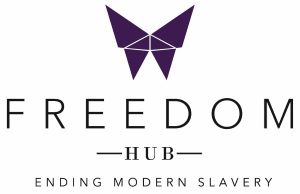Four Human Rights Issues Businesses Should Consider in 2023
How can your business have a real, effective and positive impact? Here are four human rights issues for boards and companies to consider.
2022 marks the third year of modern slavery reporting, and businesses are still failing to step up from low-effort compliance reporting instead of having a real positive impact. Market regulators are defining those links and expectations of how businesses can be responsible corporate citizens in an era of both growing transparency and complexity.
The world is still suffering from a global pandemic, and on top of the loss of life, there is still massive inequity in vaccine access and economic opportunities.
Modern slavery will remain a key focus area for Australian and UK businesses, but we should recognise that slavery as a human rights issue is intertwined with other humanitarian crises. These crises create and displace millions of vulnerable people, workers, and families across the world who become prime targets for human traffickers and criminal gangs.
As challenging as it is to limit such a list, we wanted to invite our peers and the community to discuss four key issues businesses should consider in 2023.
1. The Climate Change Issue
This is a vital decade for government and business leaders to take meaningful action against climate change. The world received a harsh lesson on inaction when the UN Environment Programme (UNEP) Gap Report stated that there is “no credible pathway” to prevent temperature rises above 1.5 degrees.
Due to climate change, we are already witnessing the increasing frequency and fury of natural disasters. In 2022 Australia’s east coast was hit by repeated floods while Pakistan villages are still underwater.
We understand the immediate tangible/intangible losses caused by floods, but businesses need to keep this issue in mind. There is cascading long-term impacts of natural disasters. Natural disasters displace a community, and they either remain in unsafe flood zones or try to relocate for work. Those who try to relocate may be desperate for work and targeted by human traffickers to be forced into slavery.
As the severity of natural disasters worsens, in 2023 businesses need to review their crisis response plans to consider the long-term human rights impacts. Especially when vulnerable groups may be impacted.
2. Debt and Cost-of-Living Issues
Since 2020 the world has been through a cost-of-living and debt crisis due to unsustainable economic planning and pandemic costs. This has put a lot of pressure on governments, businesses, and individuals to work with very little. It also created an opportunity for exploitation.
In 2020 many human rights experts warned decision-makers that migrant workers and vulnerable people without adequate economic support face a serious risk of exploitation. Abusers were fast to exploit vulnerable people through debt bondage, forced marriage, and forced labour.
Australian businesses may also contribute to this system by tightening their procurement spend. Negotiating with suppliers to lower costs for the buyer puts pressure on the supplier to minimise, which may result in them exploiting their workers (withholding wages, mandatory unpaid overtime). This can increase the risk of modern slavery by pressuring suppliers to lower costs. This pushes the risk, and the likelihood of exploitation, further down the supply chain.
3. Political Instability and Conflict
Russia’s invasion of Ukraine is a demonstration that war is still a tool of great power politics, and there is a huge humanitarian fallout of conflict. The massive forced displacement of Ukrainian civilians was jumped on by people smugglers and human traffickers to profit from sex, labour, and armed conflict trafficking, similar in circumstance to the Taliban takeover of Afghanistan.
The EU and international community’s response showed that where political will exists, refugee programs can support survivors. However, we should also acknowledge how many international students and migrant workers in Ukraine were left in asylum limbo because the definition of a refugee is still narrowly applied.
With the ever-increasing risk issue of China invading Taiwan, decision-makers in government and business still need to consider the very real risk of conflict. Businesses, specifically investors and asset managers, should be reflecting on the issue of conflict and how they responded to the Russian invasion and the global sanction, divestment, and withdrawal from the Russian market.
As transnationals vary in response, investors should consider more proactive systems of divestment in response to any government’s contributions to human rights abuses as a precursor to conflict.
4. Greater Expectations of Business Ethics
2023 marks 12 years since the unanimous endorsement by the Human Rights Council of the United Nations Guiding Principles on Business and Human Rights and 5 years since the introduction of the Australian Modern Slavery Act. Market leaders and scholarship has taken off in this space to the extent that our largest businesses know their obligations and cannot act ignorant of the expansion of the human rights approach.
We have businesses already disclosing the actions through a range of mandatory and voluntary systems including;
- The National Greenhouse and Energy Reporting Act 2007;
- ASX Corporate Governance Principles and Recommendations;
- Sustainable Development Goals (SDG);
- Global Reporting Initiative (GRI);
- Reconciliation Action Plans (RAPs); and
- Modern Slavery Statements.
These systems provide data for the government, consumers, and non-profits. But the reporting systems used can be manipulated only to report specific pieces of information and exclude data that is unflattering or nuanced. This process of “greenwashing” reports builds further distrust of corporations and serves as an argument for government to penalise misleading disclosures.
Businesses are engaged through these systems because, in a complex global economy, the government needs them to cooperate to address the socio-economic inequalities they both contribute towards. The thresholds and criteria for reporting will continue to get more specific and publicly known, businesses should disclose more about how they’re budgeting for change and working with non-profits to make meaningful changes.
Written by: Scott Penton – TFH Ethical Business Team Lead
Call Us: 0413 965 380
thefreedomhub.org/ethical-business
We help businesses respond and take action to manage and measure
the risk of slavery in their policies, procedures, and value chain.
- Modern Slavery Statements – reviews and assessment
- Modern Slavery Training – for employees, procurement teams, management, boards
- Slavery Risk Assessment, Measurement and Reporting Platform – no more spreadsheets
- Supplier Management and Engagement – procurement policies and templates
- Remediation and Response planning to ‘make good’
- HR, Whistleblower, Social Justice and Worker Voice
- Stakeholder, Shareholder and Consumer Engagement
- Industry Analysis with bespoke training and regular updates





